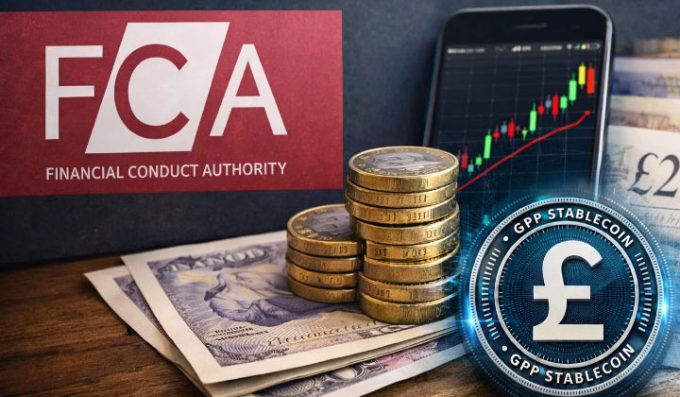 Safeguarding Your Assets: Understanding Security in Crypto Exchanges
Safeguarding Your Assets: Understanding Security in Crypto Exchanges
Cryptocurrency exchanges have become the hub for trading digital assets. But amidst the opportunities lie significant risks. Understanding the landscape of crypto exchanges and their pivotal role in asset security is critical.
Importance of Security Measures in Crypto Exchanges
Security measures within crypto exchanges are paramount. Encryption, multi-factor authentication, and cold storage play crucial roles in safeguarding assets against cyber threats.
In the ever-expanding cryptocurrency landscape, the surge in crypto exchange services has been remarkable. These platforms serve as hubs for users to engage in buying, selling, and trading various cryptocurrencies like Bitcoin and Ethereum. For companies seeking outsourcing partners for CEX, DEX, or other exchange solutions, prioritizing security within these platforms is paramount. This article delves into the pivotal role of security in crypto exchange systems.
Why Security is Paramount in Crypto Exchange Outsourcing
Security is of utmost importance in crypto exchange systems, primarily due to their handling of users’ finances and sensitive personal data. While cryptocurrencies operate on decentralized blockchain networks, the exchanges connecting to these networks are susceptible to security breaches. Outsourcing firms involved in crypto exchange development must ensure robust security measures are in place to deter cyber-attacks, hacking incidents, and data breaches.
Key Security Measures in Crypto Exchange Services
Effective security practices in crypto exchanges encompass various measures such as two-factor authentication, encryption protocols, and the use of multi-signature wallets. Two-factor authentication provides an additional security layer, mandating users to verify their identity through methods like SMS codes or biometric verification. Encryption plays a pivotal role by encoding sensitive information into an unreadable format accessible solely to authorized entities. Additionally, multi-signature wallets necessitate multiple signatures from different parties to authorize transactions, augmenting security levels.
Centralized Exchange (CEX) Development: Prioritizing Security
Centralized exchanges (CEX) operate under a central authority’s management and remain the predominant form of crypto exchanges. For outsourcing firms engaged in CEX development, ensuring robust security measures is crucial. These exchanges often store users’ funds in hot wallets connected to the internet, making them susceptible to potential cyber threats. A security breach in a centralized exchange could result in substantial financial losses for both the platform and its users.
Decentralized Exchange (DEX) Development: Upholding Security Measures
Decentralized exchanges (DEX) operate as peer-to-peer networks, allowing users to trade cryptocurrencies without centralized control. For outsourcing companies involved in DEX development, bolstering security measures is imperative. These exchanges face vulnerabilities such as front-running attacks, necessitating security protocols like smart contract audits, decentralized governance, and decentralized hosting. Smart contract audits identify and rectify security vulnerabilities, while decentralized governance empowers users in decision-making, reducing centralization risks. Furthermore, decentralized hosting, distributed across multiple computers, fortifies the exchange against potential hacking attempts.
In summary, prioritizing security in crypto exchanges, whether centralized or decentralized, is non-negotiable. It stands as a pivotal aspect for outsourcing firms, ensuring the protection of users’ assets and data integrity. By implementing robust security protocols, these firms contribute significantly to fostering trust and reliability within the dynamic realm of cryptocurrency exchanges.
Evaluating Exchange Security: Factors to Consider
Assessing an exchange’s security involves regulatory compliance, transparency, track record, and user reviews. Compliance with regulations and positive user feedback enhance trustworthiness.
Common Security Threats in Crypto Exchanges
Hacking, phishing, and insider threats remain prevalent. Recent hacking incidents emphasize the urgency of fortifying security measures.
In the realm of cryptocurrency, security breaches have been a significant source of concern, resulting in substantial losses. Notably, hackers and scammers posed as the primary threats within the industry, making headlines with the Coincheck exchange breach in 2018, absconding with $470 million in various cryptocurrencies.
While the Coincheck incident previously held the title for the most significant crypto hack, it has been overshadowed by the $620 million Ronin Network breach in 2022. However, recent data reported by TechCrunch for Q2 2023 showcased a notable decrease in losses due to security breaches across protocols, bridges, and exchanges, amounting to $204 million. It’s worth noting that investors also face losses from crypto scams and rug pulls.
The report highlighted a mere $4.9 million recovery out of the substantial $204.3 million lost to cyber heists, fraudulent activities, and market manipulations in the second quarter of 2023. This marks a significant decrease compared to the $6.9 million reclaimed during the same period in 2022.
Encouragingly, losses decreased by 55% in Q2 2023 compared to the industry’s staggering $462.3 million loss in the first quarter of that year, attributed to malicious attacks and deceptive schemes.
It’s crucial to acknowledge that cryptocurrency thefts are largely preventable. Investors can shield themselves from security breaches by adopting certain security measures and avoiding high-risk scenarios. Simple yet crucial actions, such as storing cryptocurrencies in secure personal wallets and refraining from linking wallets to risky platforms, significantly enhance an investor’s safety within this rapidly growing industry.
Despite cyber threats continuously evolving, implementing basic security protocols remains paramount for safeguarding digital assets. Empowering investors with knowledge and proactive steps is pivotal in ensuring a more secure environment within the crypto landscape.
Cryptocurrency Security Standards (CCSS) serve as comprehensive guidelines ensuring the secure handling of cryptocurrencies within information systems. Introduced in 2014 by a consortium of experts spanning the cryptocurrency, academic, and security sectors, these standards aim to create a unified framework for assessing and contrasting the security levels of various cryptocurrency services and products. A report by Deloitte details these standards and their pivotal role in the crypto landscape.
CCSS comprises ten key facets, each categorized into three compliance levels: Level I (Basic), Level II (Standard), and Level III (Advanced). These aspects encompass critical security measures:
Key/Seed Generation: Secure generation and safeguarding of cryptographic keys or seeds to prevent unauthorized access or tampering.
Wallet Creation: Configuration and creation of wallets for managing and storing keys or seeds securely.
Key Storage: Safeguarding keys or seeds through storage and backup methods to avert loss or theft.
Key Usage: Guidelines on how keys or seeds are utilized for transactions or operational purposes.
Key Compromise Policy: Procedures for responding to suspected or confirmed key compromise events.
Keyholder Authentication: Verification of keyholders’ identities and authorization before granting access.
Keyholder Authorization: Definition and enforcement of keyholders’ roles and responsibilities.
Number of Keyholders: Requirements for the number of keyholders needed for specific operations or transactions.
Key Recovery: Procedures for key or seed recovery in emergencies or disasters.
Audit: Monitoring and review of cryptocurrency systems and processes for security assessment.
CCSS significantly enhances security for customers’ digital assets across various platforms and applications, enabling better practices and stringent requirements for cryptocurrency security. This adherence helps mitigate risks associated with hacking, theft, fraud, human errors, or unforeseen calamities.
By embracing CCSS protocols, organizations bolster their security posture, offering reassurance to customers and stakeholders within the crypto industry. The standards facilitate comparison and evaluation of products and services based on their security levels, fostering trust and confidence.
Securing cryptocurrencies shouldn’t be delayed, as the potential fallout from a security breach outweighs any preventive measures. It’s imperative for retail crypto investors to take ownership, perform due diligence, and follow recommended practices diligently. With added vigilance, investors can focus on growth without fretting over the safety of their digital assets.
Best Practices for Securing Assets on Crypto Exchanges
Regular security audits, robust passwords, and multi-factor authentication bolster asset security. Diversifying investments across exchanges minimizes potential losses.
Embarking on the thrilling journey of cryptocurrency investment demands vigilant security measures. This guide outlines the top ten security best practices imperative for safeguarding digital assets and ensuring a secure investment landscape.
- Opt for Reliable Exchanges:
Choose exchanges renowned for robust security measures, including two-factor authentication (2FA), prioritizing safety above all.
- Safeguard Your Wallets:
Protect assets using a mix of hot and cold wallets. While hot wallets ensure quick transactions, cold wallets provide enhanced security by storing crypto offline.
- Activate Two-Factor Authentication (2FA):
Strengthen account security with 2FA, requiring dual authentication layers, significantly deterring unauthorized access.
- Beware of Phishing Scams:
Remain vigilant against phishing attempts by scrutinizing URLs and avoiding unsolicited communications requesting private keys or sensitive data.
- Maintain Updated Software:
Regularly update wallet apps, exchange accounts, and operating systems to preempt potential vulnerabilities and fortify security features.
- Employ Strong, Unique Passwords:
Utilize robust passwords and ensure uniqueness across accounts to thwart breaches affecting multiple platforms.
- Consider Hardware Wallets:
For heightened security, explore hardware wallets like Trezor or Ledger, storing cryptocurrencies offline to shield against online threats.
- Educate Yourself:
Stay abreast of security trends, scams, and industry updates, engaging in discussions and following credible news sources.
- Diversify Investments:
Spread investments across different assets to mitigate losses in any single asset, providing a safety net for your portfolio.
- Utilize Multi-Signature Wallets:
Enhance security with multi-signature wallets, requiring multiple private keys for fund access, especially beneficial for joint accounts.
In summary, securing digital assets within the cryptocurrency landscape is paramount. Adhering to these essential security practices ensures proactive protection and confident navigation through this realm. Remember, knowledge and reliance on trusted platforms coupled with diverse security measures are the keys to safeguarding your digital assets.
Conclusion
In today’s digital age, safeguarding assets within cryptocurrency exchanges is a critical undertaking that necessitates a thorough grasp of risks and security practices. Foundational security measures such as encryption, multi-factor authentication, and the use of cold storage methods are instrumental in shielding assets from cyber threats. Assessing an exchange’s security posture by considering regulatory adherence, transparency, and user feedback empowers investors to make well-informed decisions.
Understanding and preempting common threats like hacking and phishing enables users to take proactive steps, including regular security audits and the adoption of strong passwords, thus minimizing vulnerability. Furthermore, diversifying investments across multiple exchanges serves as a prudent strategy to mitigate the potential impact of security breaches.
Securing assets on crypto exchanges requires continual vigilance and the deployment of robust security protocols. By embracing best practices and staying abreast of evolving threats, investors can significantly bolster the protection of their assets, ensuring a secure foothold in the dynamic crypto landscape.
In short, prioritizing security in both centralized and decentralized crypto exchanges is indispensable. Outsourcing firms play a crucial role in safeguarding users’ assets and upholding data integrity by implementing robust security measures. Their dedication to enhancing trust and reliability within the realm of cryptocurrency exchanges is pivotal for fostering a secure and resilient ecosystem.
Key Takeaways:
Cryptocurrency Security Standards (CCSS) act as fundamental guidelines aimed at ensuring strong protection for cryptocurrencies within digital frameworks. Their main goal is to create a standardized criterion for appraising and analyzing the security levels of various cryptocurrency offerings, including exchanges, wallets, and online applications. These standards encompass a comprehensive framework to assess the safety measures implemented in the diverse range of cryptocurrency services and products available in the market. They provide a unified benchmark, aiding users in evaluating the security protocols and measures adopted by different platforms, thus promoting trust and reliability within the cryptocurrency ecosystem.
You need to login in order to Like













